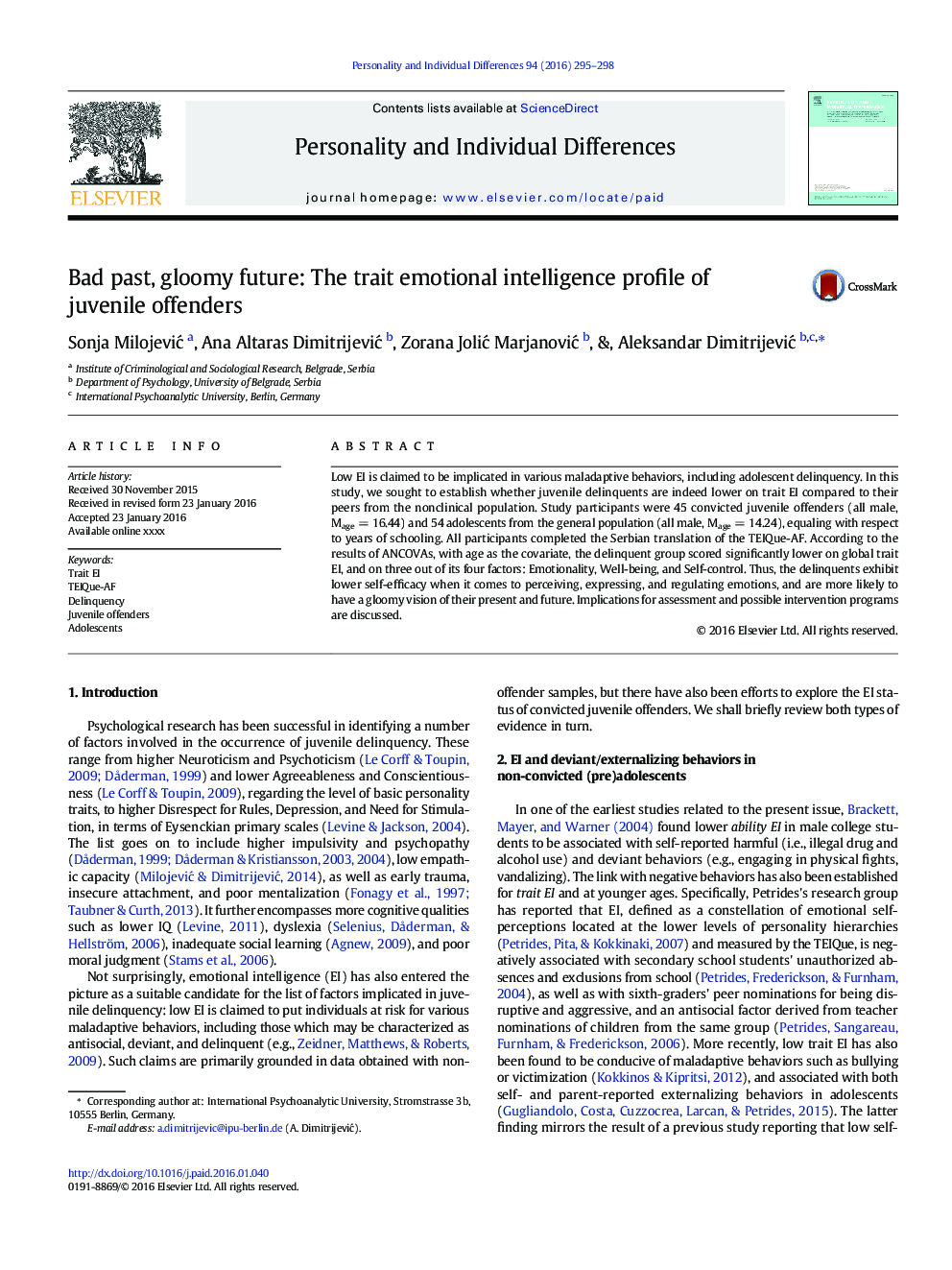| Article ID | Journal | Published Year | Pages | File Type |
|---|---|---|---|---|
| 7250431 | Personality and Individual Differences | 2016 | 4 Pages |
Abstract
Low EI is claimed to be implicated in various maladaptive behaviors, including adolescent delinquency. In this study, we sought to establish whether juvenile delinquents are indeed lower on trait EI compared to their peers from the nonclinical population. Study participants were 45 convicted juvenile offenders (all male, Mage = 16.44) and 54 adolescents from the general population (all male, Mage = 14.24), equaling with respect to years of schooling. All participants completed the Serbian translation of the TEIQue-AF. According to the results of ANCOVAs, with age as the covariate, the delinquent group scored significantly lower on global trait EI, and on three out of its four factors: Emotionality, Well-being, and Self-control. Thus, the delinquents exhibit lower self-efficacy when it comes to perceiving, expressing, and regulating emotions, and are more likely to have a gloomy vision of their present and future. Implications for assessment and possible intervention programs are discussed.
Related Topics
Life Sciences
Neuroscience
Behavioral Neuroscience
Authors
Sonja MilojeviÄ, Ana Altaras DimitrijeviÄ, Zorana JoliÄ MarjanoviÄ, Aleksandar DimitrijeviÄ,
